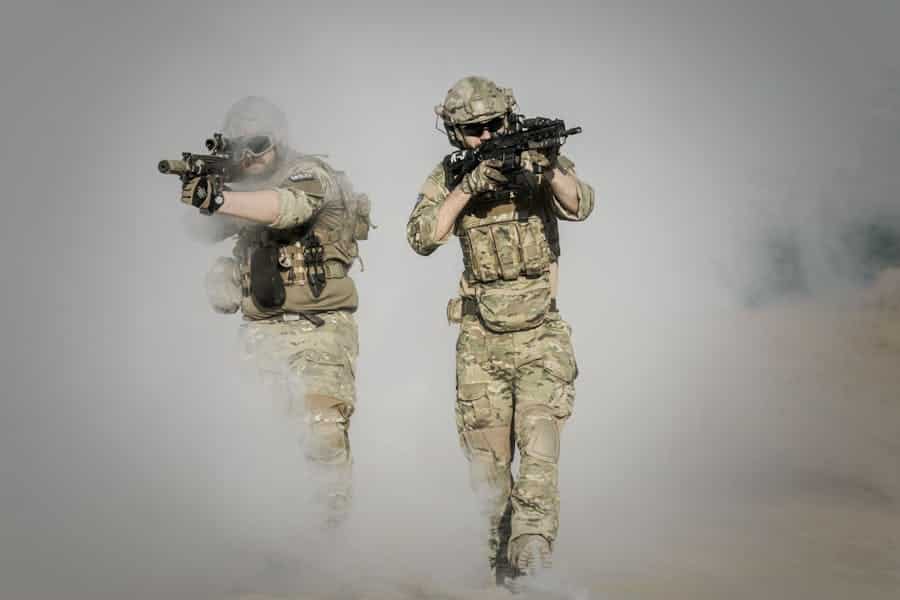
Divorce rates between military and civilian life serve as an exciting comparison because they introduce two very different challenges and stressors that military families go through. The peculiar lifestyle of military personnel, relocations, long deployments, and high-stress environments are characteristics that considerably hit marital stability. In contrast, couples in civilian life face other dynamics that are equally challenging, such as holding their relationship together. Such understanding can provide several insights into what factors contribute to marital success or failure in either instance. The paper discusses the differences between military and civilian populations related to divorce rates and discusses the causes that underlie these differences, trends, and possible ways to reduce these problems.
The Impact of Military Life on Divorce Rates
Military life has been proven to affect the stability of marriages to a great extent; this is evidenced by a high divorce rate as compared to civilian life. Continuous demands and stresses that are put upon military personnel and their families create an environment that may stress relationships. Frequent relocation disrupts family life and makes it hard for spouses to establish a stable support network and hold steady employment. Long deployments exacerbate the situation—times apart stretch even longer—and weaken emotional bonds between the couple, creating opportunities for infidelity.
Moreover, even military occupations are hugely predisposed to high-level stress, combat, and threats to life, which are among the common causes of mental illnesses such as PTSD. The psychological issues may affect marital communication and related emotional closeness, thereby escalating marital problems. Additionally, the military, with its highly structured and unduly hierarchical organization and related discipline, is translated into family life and easily leads to power imbalances and disputes over decision-making.
Even with these problems, some military families do have vigorous, resilient marriages. Effective communication, mutual understanding, and robust support systems are what render most of these relationships sustainable. Military support services encompass counseling and family support programs that offer many couples with the help needed to work through their problems. At the same time, however, the stigma associated with seeking help may keep some from availing themselves of the services offered, and instead, they allow their issues to go unresolved until divorce happens.
Targeted interventions and support mechanisms may provide a better understanding of divorce rates in military personnel. Policymakers, along with supporting organizations, will work toward reducing divorce rates and promoting marital stability by understanding how the unique stressors in military life impact military families. Military marriages require a supportive environment, and this will result only from further research and open discussion about the issues.
Divorce Rates among Civilians and Contributory Factors
Work-Life Balance
Among the major causal agents for civilian divorce rates is the inability to keep up with a proper state of work-life balance. Job-related stressors, overtime hours, and professional expectations mainly characterize this continuous factor, which mostly leads to the ignorance of household duties and emotional abandonment of the spouse. A range imbalance in this would very often breed conflicts and dissatisfaction in the institution of marriage.
Finance-Induced Stress
Money problems are just one of many reasons for a failed marriage in civilian life. Feeling insecure about finances, deep in debt, and other differences that arise in spending priorities can easily lead to quarrels between spouses. The stress of keeping on top of one’s finances can cause a breakdown of trust and teamwork to the point of separation.
Infidelity and Trust Issues
Infidelity is also one of the causes that can make both military and civilian couples divorce. However, civilian life may easily provide chances of infidelity because separations do not occur as often in civilian life as in military families. Infidelity usually leads to serious issues of trust that may be too hard to rebuild back, and this usually leads to divorce.
Communication Breakdown
Effective communication is the bedrock of a successful marriage. Poor habits of shying away from confrontations or not spelling out needs and issues, as carried from civilian relationships, will, therefore, cause misunderstandings and resentments. Prolonged over time, this communication breakage will chip away at the emotional bond between the spouses.
Cultural and Social Influences
Others, however, are cultural and social in nature. Societal expectations, gender roles, and cultural norms can all affect marital dynamics and hence create an environment within which the possibility of conflicts arising is higher. In addition, the existence of divorce as a socially acceptable marital problem fix influences the impulsive choice to separate.
Military-Civilian Differences in Divorce Rates
The incidence of divorce among the military and civilian populations differs because of differences in lifestyle. In addition to stressing marriages with the general stressors, there exist special stressors associated with military life that work to strain marriages and place them at a risk of divorce, usually higher than that experienced in civilian life.
- Stressful Deployments: Military personnel are often required to deploy to stressful areas for a longer period, at times running into months or even years. This can naturally cause emotional disconnection and provide more opportunities for infidelity that make a strong marital bond hard to sustain.
- Psychological Effects: Military duty generally exposes a serviceman to combat and life-threatening situations, which presents severe psychological problems like PTSD. These psychiatric disturbances at times hamper communication and emotional closeness between the spouses, leading to marital problems.
- Frequent Relocations: Military families are required to relocate quite frequently, sometimes as often as every two years. Due to the constant disruption of family stability by frequent relocations, spouses cannot establish and maintain social support networks and steady employment, thereby suffering financial stress and dissatisfaction.
- Military Culture and Hierarchy: This stringent hierarchy and discipline of military life can be revealing of an imbalance in power and struggles for decision-making in families. Better still, the nature of the duty that comes with military careers calls for duty pride over family commitments, translating to zero work-life balance and, thus, a feeling of neglect within the marriage.
On the other hand, other dynamics at play influence the divorce rates between civilian couples.
- Work-Life Balance: Civilian couples face immense difficulties in maintaining a balance between work and life. Obviously, job pressure, long working hours, and career goals are most likely to steal time from family matters and emotional connections, which can trigger marital conflicts.
- Financial Stress: Economic instability, debt, and divergent financial priorities are reasons that greatly contribute to marriages falling apart among civilians. Financial burden slowly eats into the trust and cooperation that exists between two partners and eventually leads to separation.
- Infidelity and Trust Issues: Chances of infidelity may be more easily available in civilian life due to lesser separation. Trust, once broken due to infidelity, is very hard to rebuild. Many marriages end up dissolving over this single issue.
- Communication Breakdown: Bad communication habits between the couples in a civilian relationship lead to misunderstandings and result in resentment. Over a period of time, these issues erode the emotional bond between the spouses and cause marital instability.
Effective Strategies for Supporting Military Marriages
Effective strategies must be in place to help marriages within military life. First and foremost, communication is essential. A treatment plan enhancing communication within the relationship can better enable the couple the dealing with the rigors of what goes on within military families. Keeping open and honest dialogue about feelings, expectations, and concerns can keep a military couple on the same page throughout their careers. Regular check-ins and assorted times for discussion serve to cement emotional bonds and can stave off miscommunication.
Another key strategy is to provide solid systems of support. Military support services—including counseling, family support programs, and peer support groups—make available a deep menu of resources for couples. These may include the fixing of mental health problems and mechanisms of coping, especially by giving military families a sense of community. This can really work for the betterment of military marriages if services are encouraged to be used and some of the stigma associated with seeking help is reduced.
It is also important to foster resilience and adaptability. Such interventions would help couples build coping mechanisms in the face of challenges occasioned by frequent relocations, long deployments in high-stress environments, and the like, with enhanced capacities for withstanding difficult situations. Resilience building through training and resources on stress management, conflict resolution, and emotional regulation can empower couples to keep strong relationships.
Apart from this, marital stability can be enhanced by promoting work-life balance within the military. Military policies related to flexible working hours, leave allowances, and being family-friendly would reduce the strain on military families. Accomplishing that will indeed create a habitable climate for the military, with respect to healthy relations among service members and their families.
A culture of appreciation and recognition within the military may also reach out very far to strengthen marriages. Such activities as recognizing the sacrifices and contributions of military families, milestone celebrations, and time-off provision for quality family time are very instrumental in enhancing marital satisfaction. By valuing and supporting military families, the military creates a positive and supportive environment for marriages.
Bottom Line
The differences in divorce rates between military and civilian populations stem from unique challenges and stressors inherent in each lifestyle. Military families face frequent relocations, long deployments, high-stress environments, and the psychological impacts of military service, all of which can strain marital relationships. In contrast, civilian couples often struggle with work-life balance, financial stress, infidelity, and communication breakdowns. Understanding these factors is crucial for developing targeted support systems and strategies to help both military and civilian couples maintain healthy and fulfilling marriages, ultimately reducing divorce rates in both populations.








